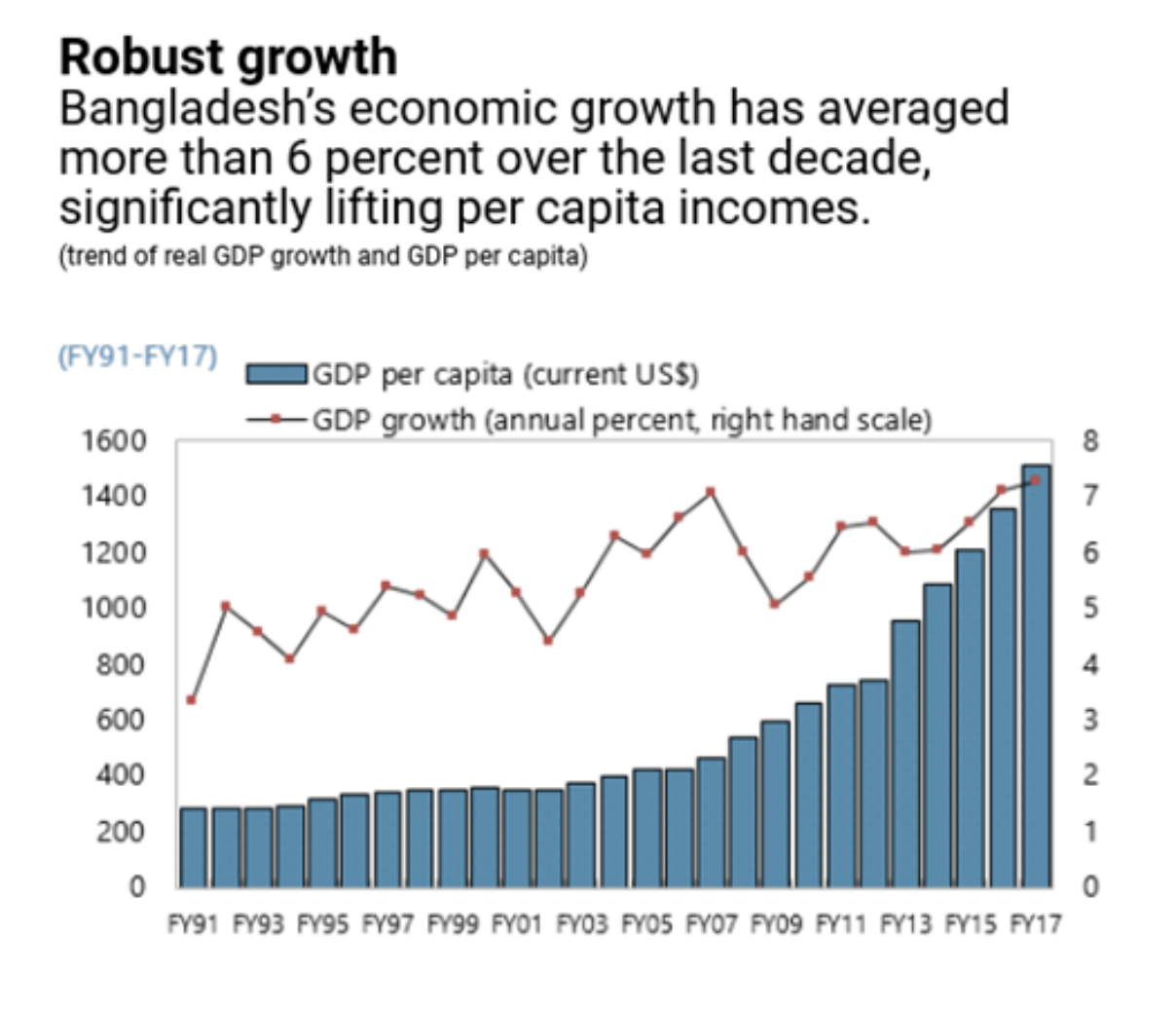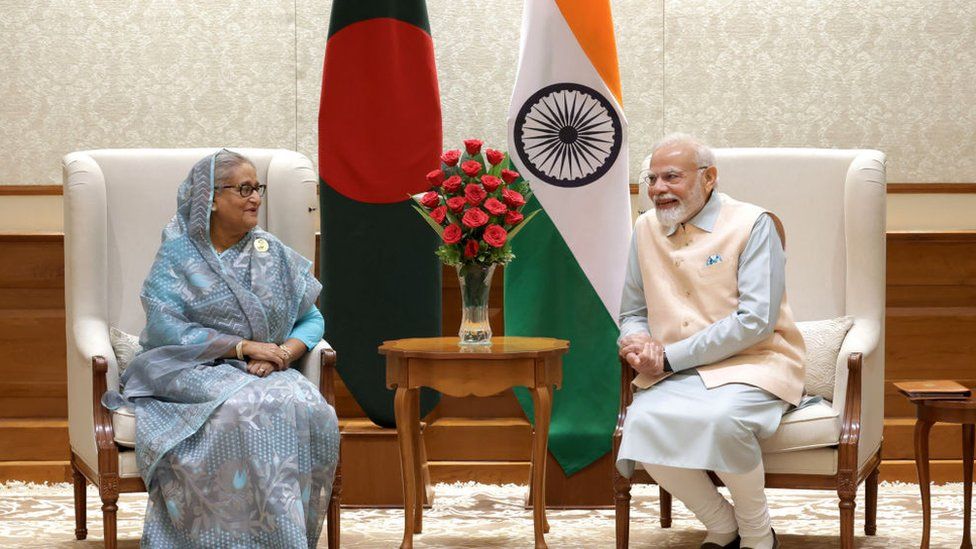Sheikh Hasina is on course to extend her rule and retain her title as the world’s longest serving female head of government after polling closed in an election boycotted by her rivals and voters. Hasina’s Awami League Party is expected to take the lead when early results trickle in and the Election Commission has put the turnout at about 40%.
It’s a sharp drop from the 80% participation in polls in 2018, as voters heeded a campaign by the opposition Bangladesh Nationalist Party to shun the election and draw attention to the sweeping crackdown her government carried out in the run up to the polls.
“We have not received major complaints of irregularities, except some,” Chief Election Commissioner Kazi Habibul Awal told reporters in the capital Dhaka.
The vote was the culmination of a monthlong campaign beset by daily street protests, the jailing of Nobel Peace Prize winner Muhammad Yunus and viral videos of ruling party leaders pushing voters to cast ballots or risk losing government benefits.
Dhaka was deserted with heavy security around voting centers. There were few reports of clashes between opposition supporters and police officials although a bomb went off at a polling station in the capital, injuring four people.
Hasina, 76, asked voters to exercise their democratic rights and support the development of the South Asian country as she cast her ballot earlier in the day. “I’m determined to make sure that democracy continues,” Hasina, flanked by her daughter and sister, told reporters. “Without democracy, development work can’t continue.”

Hasina, who is on course for a fourth straight term in power, has overseen one of the fastest-growing economies in the world and lifted millions out of poverty as part of her development agenda — achievements often overshadowed by her turn to authoritarianism.
Still, the economy is struggling with dollar shortages, which has prompted Moody’s Investors Service and others to downgrade Bangladesh’s credit ratings. The government was earlier forced to turn to the International Monetary Fund for $4.7 billion in emergency loans after the pandemic and soaring commodity prices depleted foreign exchange reserves.
About 120 million people were eligible to vote for 300 of the 350 seats in parliament. In recent weeks, prominent leaders from Hasina’s Awami League party have been shown on social media video clips telling voters that they risked losing their benefits if they didn’t take part in the elections.
The main opposition Bangladesh Nationalist Party has boycotted the national vote in response to Hasina refusing to step aside and allowing a caretaker government to run the poll. The dispute has led to street battles between the opposition group, security forces and supporters of Awami League.
On the eve of the national vote BNP Senior Joint Secretary General Ruhul Kabir Rizvi called for voters to boycott the election to mark the “downfall” of Hasina’s government, according to the Daily Star newspaper. The Awami League is targeting 50% turnout and has allowed some of its leaders to contest as independents to spur voter interest, the paper reported.
Police arrested several opposition leaders in the months before the election. Hasina’s main rival and BNP leader Khaleda Zia faces suspended jail sentences on graft charges that her supporters say are trumped up.
Whats the cost of growth under Sheikh Hasina?
Bangladesh under Ms Hasina presents a contrasting picture. The Muslim-majority nation, once one of the world’s poorest, has achieved credible economic success under her leadership since 2009.
It’s now one of the fastest-growing economies in the region, even surpassing its giant neighbour India. Its per capita income has tripled in the last decade and the World Bank estimates that more than 25 million people have been lifted out of poverty in the last 20 years.
Using the country’s own funds, loans and development assistance, Ms Hasina’s government has undertaken huge infrastructure projects, including the flagship $2.9bn Padma bridge across the Ganges.
The bridge alone is expected to increase GDP by 1.25%. But in the wake of the pandemic, Bangladesh has been struggling with the escalating cost of living. Inflation was around 9.5% in November. Its foreign exchange reserves have dropped from a record $48bn (£38bn) in August 2021 to around $20bn now – not enough for three months of imports. Its foreign debt has also doubled since 2016.

Critics say economic success has come at the cost of democracy and human rights, and allege that Ms Hasina’s rule has been marked by repressive authoritarian measures against her political opponents, detractors and the media.
In August more than 170 global figures including former US president Barack Obama, Virgin Group founder Richard Branson and U2 lead singer Bono, wrote an open letter to Sheikh Hasina urging her to stop the “continuous judicial harassment” of Nobel laureate Muhammad Yunus. And in recent months, many senior BNP leaders have been arrested, along with thousands of supporters following anti-government protests.
Mr Khan – one of the few senior leaders of the BNP not under arrest – alleges that more than 20,000 party supporters have been arrested on “fictitious and concocted charges”, while cases have been filed against millions of party activists.
The government denies this. “I have checked and it’s half that number,” says Mr Huq, referring to the number of its supporters the BNP alleges are in detention. “Some of the cases go back to violent incidents that took place during the 2001 and 2014 elections.”
Sheikh Hasina & India
“The European Commission should hold Bangladesh accountable on the democratic situation. It should consider withdrawing tariff-free access given to products from Bangladesh” said Karen Melchior, a member of the European Parliament.
Bangladesh is the world’s second-largest garment exporter after China. Last year it shipped more than $45bn worth of ready-to-wear garments, mostly to Europe and the US. The question many ask is why Western nations, which have such enormous economic clout, allow Sheikh Hasina to act with impunity while systematically dismantling democratic institutions.
The elephant in the room is neighbouring India, which opposes any coercive action against Bangladesh. Delhi wants road and river transport access for its seven north-eastern states through Bangladesh.
India is also concerned about the “chicken’s neck”, a 20km (12-mile) land corridor that runs between Nepal, Bangladesh and Bhutan, linking its north-eastern states to the rest of India. Officials in Delhi are afraid it is strategically vulnerable in any potential conflict with India’s rival, China.

Soon after coming to power in 2009, Ms Hasina also won favour with Delhi after acting against ethnic insurgent groups in India’s north-east, some which were operating along the border. There are concerns that any excessive arm twisting could push Dhaka towards China.
Beijing is already keen to extend its footprint in Bangladesh as it battles for regional supremacy with India. For now, Sheikh Hasina appears to have a clear path to power. But challenges to her authority may soon appear from other quarters.
Dhaka has already asked the International Monetary Fund for a loan of $4.7bn to avert any balance of payment crisis. So it’s likely the government will have to take some tough measures after the elections to help boost the economy. Her opponents may not be standing, but public fallout from austerity policies could pose an early challenge to Ms Hasina and her Awami League.
Asked about her message to India on election day, Hasina said, ”We are very lucky. India is our trusted friend. During our Liberation War, they supported us. After 1975, when we lost our whole family, they gave us shelter. Our best wishes to the people of India.”












